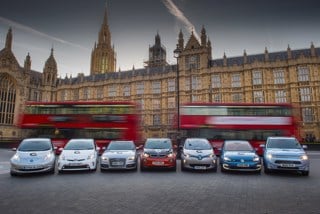The Government has announced that the Chancellor, Sajid Javid, has chosen March 11 as the date for his first Budget - the first since the general election.
Following months of uncertainty for the fleet industry, it is expected that the Chancellor will now adopt new benefit-in-kind (BIK) tax rates, announced last summer.
On publishing the new rates in July 2019, the Government said it would bring forward legislation to implement them from April 2020.
The legislation was due to be introduced in the Finance Bill, which would have followed an Autumn Budget. However, when the Government lost its working majority in the House of Commons and struggled to push through its Brexit withdrawal agreement, it cancelled the planned Budget on November 6 after winning a vote in the House of Commons to hold a general election on December 12.
The delay created more uncertainty for the fleet industry, with fleet decision-makers and company car drivers not knowing their tax liabilities for future years.
The Budget will allow the new rates to be adopted into law and, with the passage of the Finance Bill through Parliament expected to go beyond April 6 (when they should become effective), it is understood the legislation will allow them to be backdated.
NEW RATES PUBLISHED
The fleet industry were asked at the start of last year to respond to a series of questions around whether vehicle tax changes were required once the new vehicle emissions testing regime – the Worldwide harmonised Light vehicle Test Procedure (WLTP) – is adopted for tax purposes from April.
It is a pressing issue for fleets as manufacturers suggest that more than 50% of cars they make will see an increase from NEDC-correlated emissions values to WLTP of between 10% and 20%. Fleet News has seen increases as high as 30%.
For company car drivers and fleet operators choosing a new car from April 2020, this would result in an increased tax liability, compared with an identical model.
HM Treasury published its response to the review in July, which resulted in the binning of the previous BIK rates for 2020/21.
In their place, it unveiled two new BIK tables for company car drivers; a table for those driving a company car registered after April 6, 2020, and one for those driving a company car registered before the same date.
For cars first registered from April 6, 2020, most company car tax rates were due to be reduced by two percentage points, with a new zero percentage rate for pure electric vehicles (EVs).
The zero percentage rate was also extended to EVs registered prior to April 6, 2020, who were already looking forward to a much reduced rate of 2% for 2020/21.
Publishing BIK tables for the next three years, up to April 2023, HM Treasury said rates thereafter would be realigned.
UNLEASHING POTENTIAL
During a visit to the new £350 million Trafford Park tram line project in Manchester, the Chancellor said he intends to use the Government’s first Budget to deliver change - unleashing Britain’s potential, delivering world-class public services and levelling up the whole country.
He said: “People across the country have told us that they want change. We’ve listened and will now deliver.
“With this Budget we will unleash Britain’s potential – uniting our great country, opening a new chapter for our economy and ushering in a decade of renewal.”
Javid will provide an economic update to Cabinet colleagues before updating Parliament during Treasury oral questions later today.
























James - 14/01/2020 11:57
Just had my tax code for 20/21 and my electric car BIK Is showing at 2%. Maybe HMRC are struggling to keep up us much as we are?